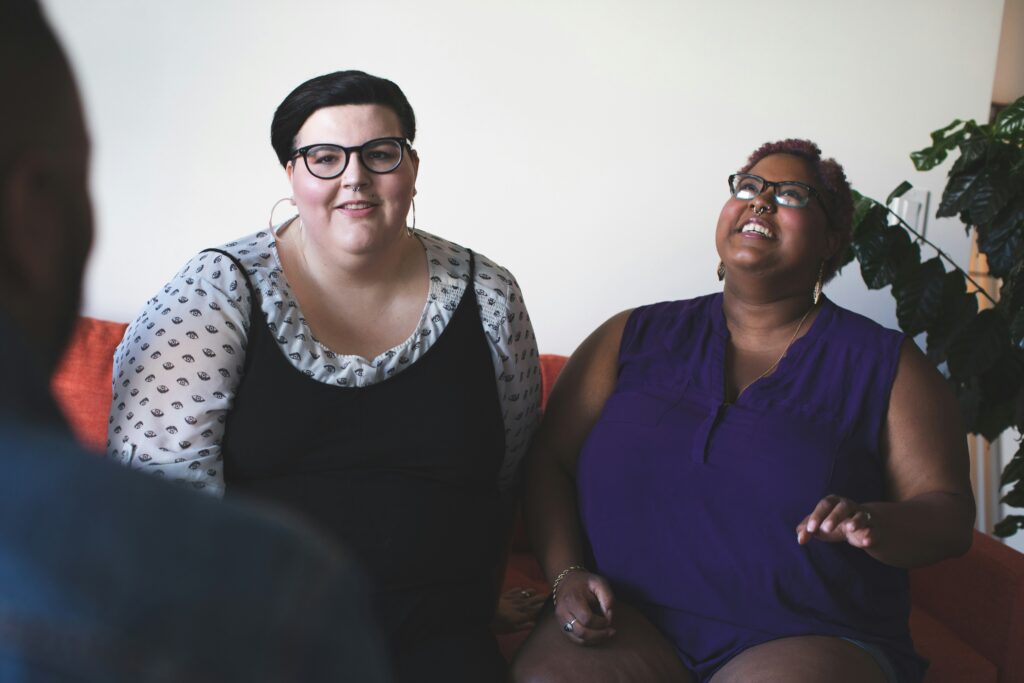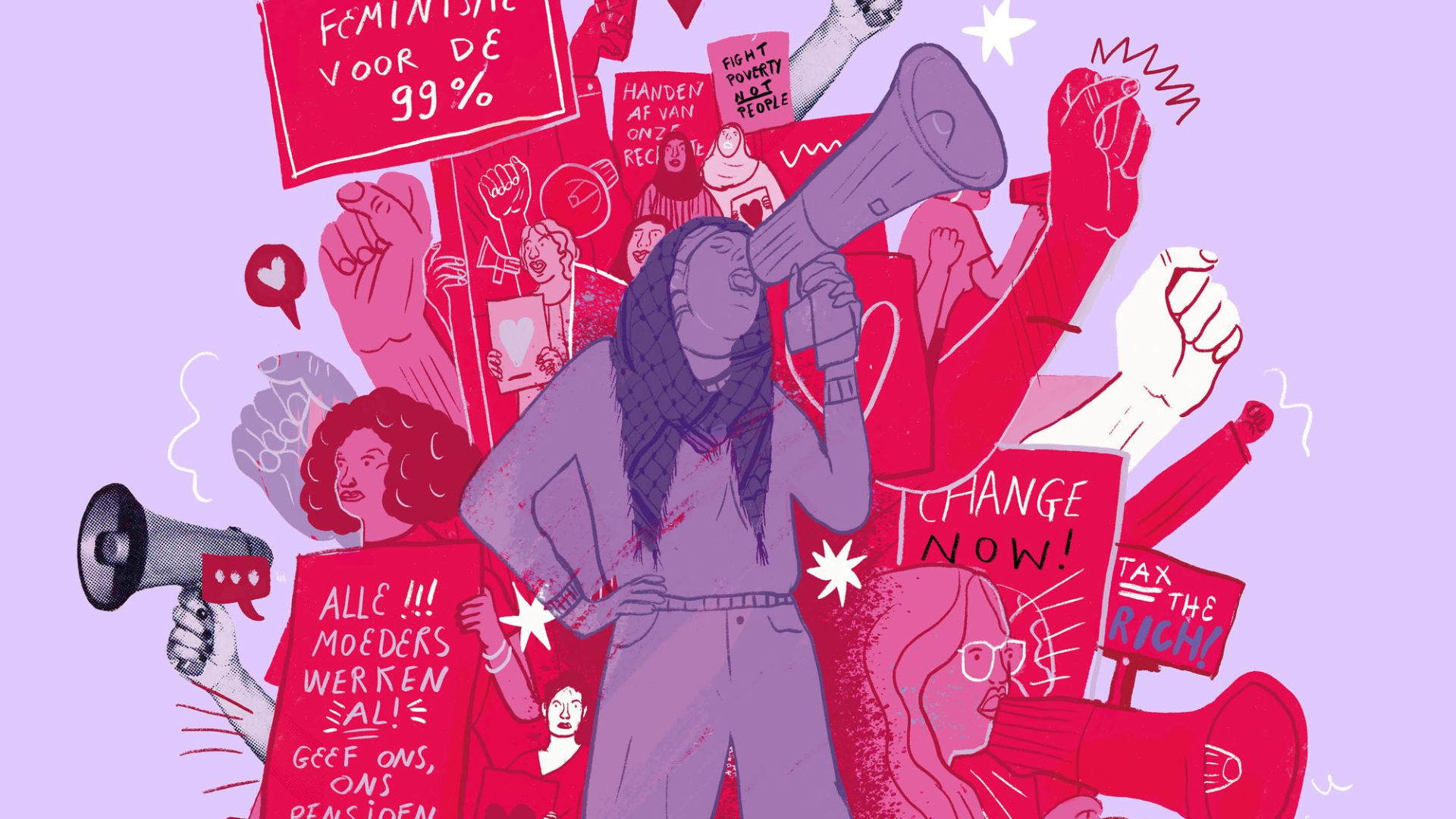
When our Body Becomes an Obstacle: Fatphobia, Discrimination, and Aesthetic Norms
In our society, various norms surrounding appearance exert constant pressure on those who deviate from them. One of the most affected groups: fat people—especially when they already belong to other marginalized groups. Their bodies are continuously scrutinized, judged, and pathologized. This phenomenon is better known as fatphobia: a systemic form of oppression too often reduced to a matter of personal discomfort.
Daily Violence, Systemic Oppression
Not everyone has the privilege of moving through life unnoticed. Some bodies disturb, stand out, and are constantly exposed to public scrutiny. The main victims are fat bodies—and especially those belonging to marginalized people: women, queer people, racialized people, people with disabilities, or those in precarious conditions. They are the focus of stigmatization deeply rooted in society.
This violence takes many forms: microaggressions in daily life, limited access to healthcare, discrimination in hiring, and even the denial of the simple right to take up space. Fatphobia cannot be viewed in isolation: it is interwoven with other systems of oppression—sexism, racism, ableism, classism, and heteronormativity. Its goal is to render bodies considered “too much” invisible, submissive, or silent: too fat, too Black, too queer, too feminine.
It is therefore no coincidence that the athletic ability of fat people is so often questioned. Can you walk 20 km? Climb stairs? As if respect must first be earned through a form of proof of effort. That sets a dangerous precedent.
Fat people owe no one anything—no achievements, no transformations, no smiles to ease others’ discomfort. They do not need to justify their health status—especially not in a society that never demands the same of others.
The Weight of Norms in the Professional World
The job market is one of the areas where appearance-based discrimination manifests itself most insidiously. People perceived as fat—and more broadly, anyone who does not conform to dominant beauty standards—are often excluded as early as the first stages of recruitment.
In France, a 2021 study by the Défenseur des droits and the ILO showed that obese women are eight times more likely to experience discrimination when applying for a job. Trans people, non-binary people, and those who dress outside expected clothing norms are also systematically excluded.
These intersectional discriminations are part of a broader phenomenon: lookism. This relatively new term refers to all forms of discrimination based on physical appearance, including sexism, racism, ableism, ageism, fatphobia, and clothing-based stigma. Lookism reminds us that the body is never neutral—it is judged, hierarchized, and politically controlled.
“La Gueule de l’emploi”: A Feminist and Student Counter-Reaction
In this context, six students from the Master’s program in Cultural and Social Communication at IHECS (Brussels) launched an activist project against lookism: La Gueule de l’emploi —a guide dedicated to appearance-based discrimination in hiring, particularly focussed on FINTA people (Women, Intersex, Non-binary, Trans, Agender).
Created from a feminist and intersectional perspective, this guide aims to raise awareness, inform, and provide concrete tools to combat these injustices. It also gives voice to those directly affected—voices that are too often silenced.
This local initiative is part of a global movement: one of reclaiming the narrative. It contributes to the politicization of the body, to questioning professional norms, and to demanding a legitimate place in the working world.
Media Obscuration and Visual Culture
Fatphobia does not stop at the doors of workplaces—it permeates media, fashion, public health campaigns, and social networks. Bodies that are fat, racialized, trans, elderly, or disabled are rarely represented—and when they are, it is often through clichés or medicalized portrayals.
This invisibilization is far from innocent. It reinforces the idea that only certain bodies are worthy of love, success, or visibility. The aesthetic norms being spread become internalized compulsions—at the cost of immense suffering. Fat people are not rare; they are simply rendered invisible.
Resisting and Reclaiming Spaces
In Belgium, the collective FatFriendly maps cultural and public spaces that are welcoming to fat people. In France, the movement Gras Politique, co-founded by Daria Marx, fights for an inclusive society free from oppressive body norms.
Through festivals, actions, and practical guides, these initiatives shape the contours of a feminism that leaves no one behind—especially not those whose bodies are marginalized.
This struggle is essential. It creates spaces of resistance, solidarity, survival, and above all, political affirmation.
For Structural and Radical Change
Fighting fatphobia is not about asking for more kindness or tolerance—it is about demanding rights. It is about claiming full recognition of fat people as legitimate, respectable, competent citizens.
It means rejecting the idea that the body can serve as a criterion for social selection. It means attacking imposed beauty standards, decolonizing the gaze, and politicizing marginalized bodily experiences. Fat people should not have to transform themselves to meet social expectations. It is society that must change—and embrace the diversity of bodies.
No body has to justify itself. All bodies are legitimate. And no body needs to prove it deserves to exist.
More information
https://www.unia.be/en/dossiers/fat-phobia

Faustine Stricanne
Stagiaire Amazone


